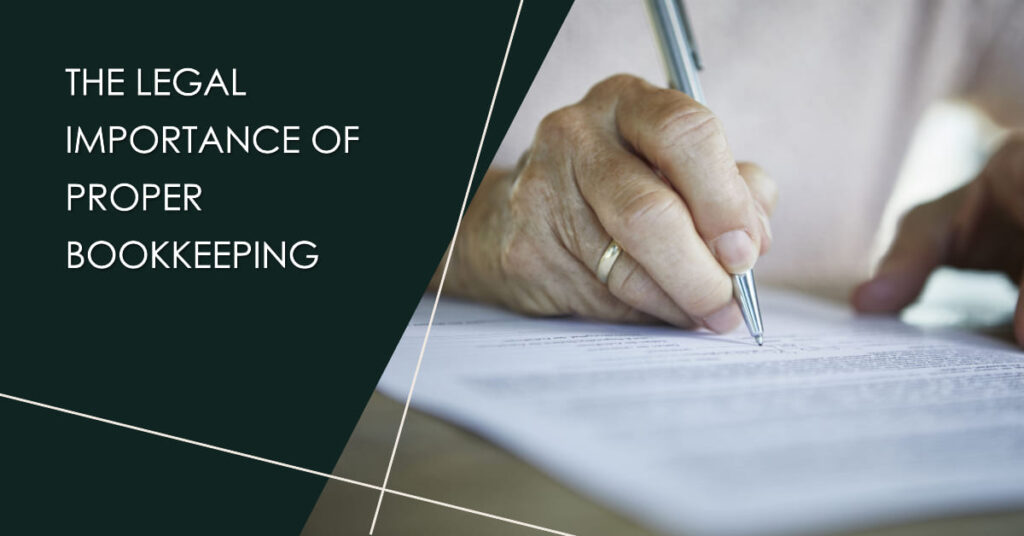Tax-Ready Bookkeeping for Small Businesses
For small business owners, tax season can be a daunting time of year. Navigating the complex world of taxes and ensuring compliance with ever-changing regulations is no small task. One of the key elements in preparing for a successful tax season is maintaining Tax-Ready Bookkeeping for Small Businesses throughout the year. In this guide, we will explore the importance of tax-ready bookkeeping and provide practical tips for small businesses to stay organized and tax-compliant.
Why Tax-Ready Bookkeeping for Small Businesses Matters
Tax-Ready Bookkeeping for Small Businesses is not just about keeping your financial records in order; it’s about setting your business up for success in the long term. Here are some compelling reasons why tax-ready bookkeeping is crucial for small businesses:
- Accurate Tax Reporting
Accurate and organized financial records ensure that you report your income and expenses correctly to tax authorities. Mistakes in your tax filings can lead to costly penalties and audits. Maintaining organized books helps you avoid these pitfalls.
- Better Financial Management
Tax-ready bookkeeping for Small Businesses allows you to have a clear understanding of your business’s financial health throughout the year. You can track cash flow, identify areas for cost-cutting or revenue growth, and make informed decisions about the future of your business.
- Time and Stress Savings
Waiting until the last minute to prepare your tax documents can be incredibly stressful. Tax-Ready Bookkeeping for Small Businesses distributes the workload evenly throughout the year, reducing stress and allowing you to focus on your business’s core operations.
- Compliance and Legal Obligations
Tax authorities expect businesses to maintain accurate financial records and report their income and expenses correctly. Failing to do so can lead to legal issues and damage your business’s reputation.
Tips for Tax-Ready Bookkeeping for Small Businesses
Now that we understand the importance of Tax-Ready Bookkeeping for Small Businesses, let’s delve into practical tips to help small businesses achieve and maintain it:
- Choose the Right Accounting Software
Invest in accounting software that suits your business’s needs. Cloud-based accounting solutions like QuickBooks, Xero, or FreshBooks offer user-friendly interfaces and automation features that simplify bookkeeping tasks.
- Set Up a Separate Business Bank Account
Separating your personal and business finances is essential. Open a dedicated business bank account to make tracking income and expenses more straightforward.
- Keep Detailed Records
Record all financial transactions promptly and accurately. This includes sales receipts, invoices, purchase orders, and expense receipts. Being meticulous about record-keeping is vital for tax audits.
- Categorize Transactions Correctly
Ensure that you categorize income and expenses correctly. Create clear and consistent categories in your accounting software to avoid confusion and make reporting easier.
- Reconcile Accounts Regularly
Reconcile your bank and credit card statements with your accounting records on a monthly basis. This helps identify any discrepancies and prevents errors from accumulating.
- Monitor Cash Flow
Regularly review your cash flow statement to understand how money flows in and out of your business. This insight can help you plan for tax payments and manage your finances effectively.
- Stay Informed About Tax Laws
Tax laws and regulations change frequently. Stay updated with the latest tax laws that affect your business, and consult with a tax professional to ensure compliance.
- Keep Copies of Important Documents
Maintain copies of tax returns, financial statements, and supporting documents for a minimum of seven years. This is essential for potential audits or inquiries from tax authorities.
- Consider Professional Help
If you’re unsure about tax regulations or feel overwhelmed by bookkeeping tasks, consider hiring a certified public accountant (CPA) or a tax professional. Their expertise can save you time and money in the long run.
- Plan for Estimated Taxes
Small businesses often need to make quarterly estimated tax payments. Calculate these payments accurately to avoid underpayment penalties.
Conclusion: Tax-Ready Bookkeeping for Small Businesses
Tax-Ready Bookkeeping for Small Businesses is not just a once-a-year activity but an ongoing process that can help small businesses thrive. By following these tips and staying organized throughout the year, you can save time, reduce stress, and ensure compliance with tax laws. Ultimately, maintaining tax-ready bookkeeping is an investment in the financial health and success of your business, making tax season a smoother and less daunting experience.


